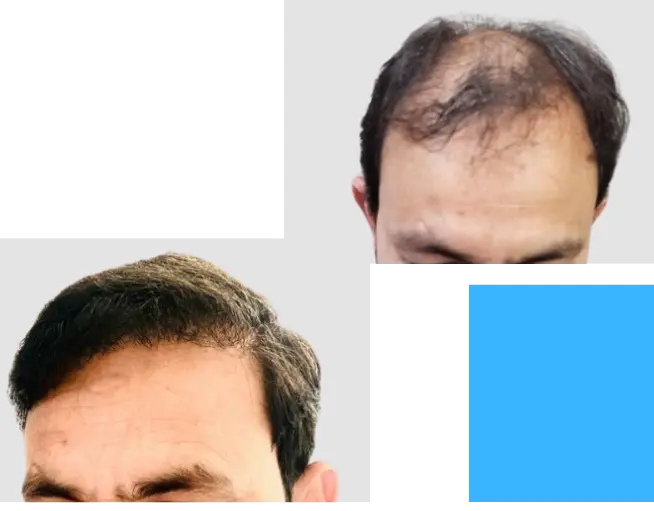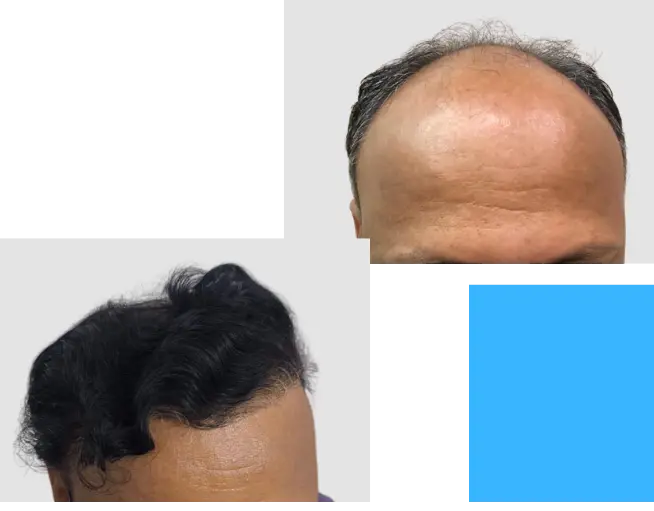Blood Test for Hair loss
Understanding Blood Tests for Hair Loss
Why blood tests matter in hair loss diagnosis comes down to understanding the hidden causes behind thinning or shedding hair. Hair loss isn’t always about genetics—sometimes, it’s a symptom of an internal issue like a thyroid imbalance, iron deficiency, or hormonal shift. Blood tests help uncover these root causes, giving your doctor a clearer picture of what’s happening inside your body. If you’re considering hair restoration treatments or searching for personalized hair loss solutions, getting lab work done is a smart first step. It ensures you’re not treating the symptom while ignoring the source. For example, low ferritin or high DHT levels can directly impact hair health, and knowing this early can guide your treatment plan. Blood tests make hair loss diagnosis more accurate and your path to regrowth more effective. If your hair is falling out and you don’t know why, don’t guess—test.
Why Blood Tests Matter in Hair Loss Diagnosis
Hair loss affects men and women globally, and while it’s normal to lose hair daily, excessive thinning or bald spots may signal an underlying issue. Blood tests play a key role in identifying the root cause and guiding the right treatment for hair loss—whether through lifestyle changes, medication, or even hair transplant procedures like follicular unit transplantation (FUT), follicular unit extraction (FUE), Direct Hair Implantation (DHI), or advanced precision-based methods like MHI.
By uncovering issues like vitamin deficiencies, hormonal imbalances, or medical conditions, blood tests help healthcare providers—and hair transplant surgeons—offer effective, targeted care.
Common Causes of Hair Loss
Before running tests, it’s helpful to understand common reasons why people lose hair:
• Nutritional Deficiencies: Low levels of iron, vitamin D, or biotin can weaken hair follicles, slowing hair regrowth.
• Hormonal Imbalances: Conditions like PCOS or thyroid disorders disrupt hormones that control hair growth.
• Genetic Factors: Androgenetic alopecia is a leading cause of hair thinning in both men and women.
• Medical Conditions: Autoimmune disorders like alopecia areata or chronic scalp infections can also contribute to hair loss.
Identifying the type of hair loss you’re facing helps determine if non-surgical methods or types of hair transplant procedures may be needed for long term hair restoration.
Blood Tests for Hair Loss in Women
For women, hair thinning may relate to many internal factors. These tests help identify key issues:
Complete Blood Count (CBC)
This basic test checks your overall health. It helps detect anemia, which can limit oxygen to the hair follicles, affecting new hair growth.
Ferritin Test
Ferritin measures stored iron. Low ferritin means you may not have enough iron to support healthy hair, especially if you’re noticing excessive shedding or poor hair transplant expectations post-treatment.
Thyroid Function Tests
Thyroid hormones regulate metabolism and hair regrowth. Tests like TSH, T3, and T4 can spot underactive or overactive thyroid problems—both known triggers for hair loss.
Hormone Tests
These tests check levels of estrogen, progesterone, testosterone, and DHEAS. High androgens can lead to androgenetic alopecia, while imbalanced estrogen may slow growth or cause thinning.
Blood Tests for Hair Loss in Men
Men also benefit from targeted testing to evaluate types of hair loss and explore non-invasive options or prep for FUE hair transplantations, DHI, or MHI.
Testosterone and DHT Levels
High levels of dihydrotestosterone (DHT), a byproduct of testosterone, often cause male-pattern baldness. Testing can show if DHT is attacking the hair follicle, and guide treatment options like PRP or types of hair transplant techniques including DHI and the MHI method, which offer higher graft precision and survival rates.
Iron Test
Just like in women, low iron affects blood flow to the scalp, reducing hair grafts success and limiting hair regrowth.
Thyroid Function Tests
Thyroid issues in men can also lead to unexpected hair loss or thin transplanted hair, especially after a hair transplant procedure.
Vitamin and Nutrient Tests
Vitamin D, zinc, and biotin deficiencies weaken scalp health. Identifying and correcting these levels improves outcomes for both natural treatments and surgical solutions like hair transplant surgeries.
What Blood Test Results Can Reveal
Reading blood test results requires a doctor, but here’s what certain markers might mean:
• Low Ferritin or Iron: A sign of deficiency affecting hair grafts and hair restoration.
• Abnormal Thyroid Levels: Could mean hypothyroidism or hyperthyroidism is harming your hair follicle health.
• High Androgens: May point to androgenetic alopecia, especially in women with PCOS symptoms.
• Vitamin Deficiencies: Gaps in key nutrients delay new hair growth and weaken your donor area for future types of hair transplant.
What Happens After Your Blood Test?
Once your results come in, your doctor or hair transplant surgeon can build a personalized plan. This may include:
• Dietary Adjustments: Add iron, vitamin D, or protein-rich foods to support long term scalp and hair follicle health.
• Supplements or Medication: Address underlying issues like thyroid disease or hormonal imbalances.
• Lifestyle Changes: Improve sleep, reduce stress, and maintain a scalp care routine to enhance hair regrowth.
For those considering hair transplant procedures, blood tests also help assess readiness for surgeries like FUE, FUT, DHI, or the MHI technique—a precision-based DHI advancement designed to optimize angle, depth, and natural appearance.
Conclusion
Blood tests offer critical insights into what’s really causing your hair loss. Whether you’re just starting to notice thinning or are exploring types of hair transplant procedures, these tests provide a roadmap for choosing the right solution to hair loss.
Working with your doctor or a certified transplant surgeon, you can develop a complete plan—from diet and supplements to advanced hair transplant techniques. If you’re seeing ongoing thinning or patchy bald spots, don’t wait. A few blood tests could be the first step in restoring your confidence and achieving long-lasting hair restoration.
Before & After
See the Difference
Hear from our patients as they share their life-changing experiences with VPlant Hair Clinic.






Inspiring Journeys to Confidence
Hear from our patients as they share their life-changing experiences with VPlant Hair Clinic.
Hair Transplant Services
Rejuvenate Your Hair Experience Thicker, Healthier, and Fuller Locks with Advanced Treatments!

Read More

Read More

Read More

Read More

Read More

Read More

Read More
Our Patients Speak for Us
Rated ⭐⭐⭐⭐⭐ by 1,000+ happy customers!
"Life-changing experience with VPlant! The results are unbelievable." – Read More
Dr. Pradeep Mishra did a fantastic job and worked diligently to achieve the best results. and the staff was attentive and caring, always ready to help.
I am so impressed by the team dedication and the level of patient care they provide.
Dr. Sagar along with his subordinates were were very and thougtfull while surgery especially Ms. Sashimi and her colleagues.
Awesome experience and hopefully the results will reflect the same!!!!! Cheers 🍻
Thanks to their expertise, my hair has regained its volume.
I have no doubt in referring V plant to my friends and family for any hair related treatment.
Frequently Asked Questions
1. Is female hair transplant surgery painful?
Not really. Most women only feel a little discomfort, and it’s managed with anesthesia and medicine.
2. When will I see new hair?
New hair growth usually starts around 3–4 months after surgery. Full results take about a year.
3. Will a hair transplant work for me?
It depends. Some women are better candidates than others. Still unsure? A consultation with a hair transplant surgeon is the most reliable way to understand what’s right for you.
4. Are results permanent?
Yes, the transplanted hair is usually permanent, but you can still lose hair naturally over time.
5. What if I don’t want surgery?
And if surgery isn’t ideal, don’t worry—there are alternatives like PRP, medications, and cosmetic options tailored for female hair loss.






Why Choose Our Clinic?
Experience and Expertise You Can Trust

Leading Hair Restoration Experts
Our dermatologists specialize in the most advanced and effective hair restoration treatments available

State-of-the-Art Technology
We use the latest in regenerative medicine to provide safe, effective treatments that deliver results.

Tailored Treatment Plans
Every treatment is customized to meet your unique needs and goals for hair restoration.

Transform Your Hair, Transform Your Life
Book Your Consultation Today!




